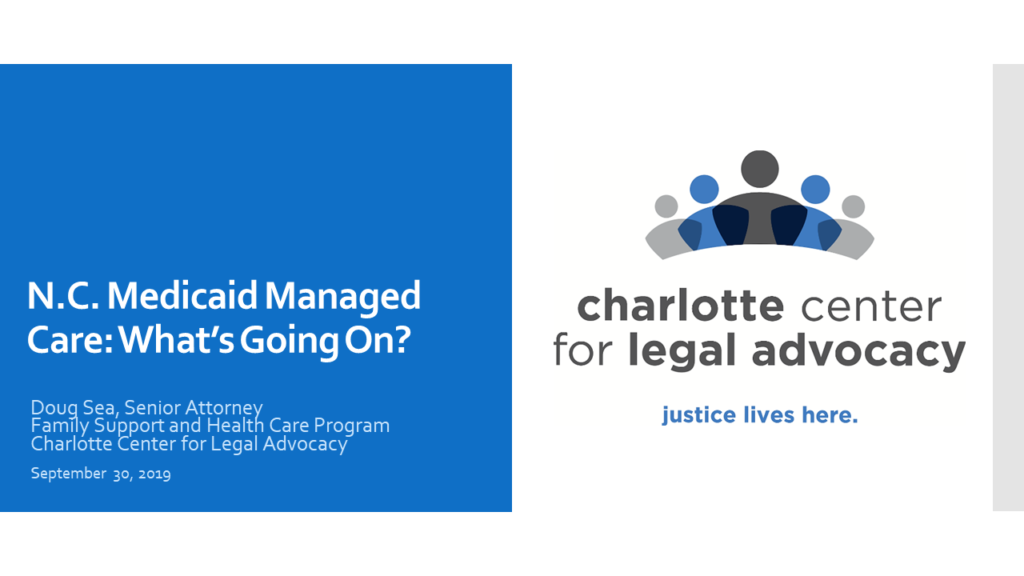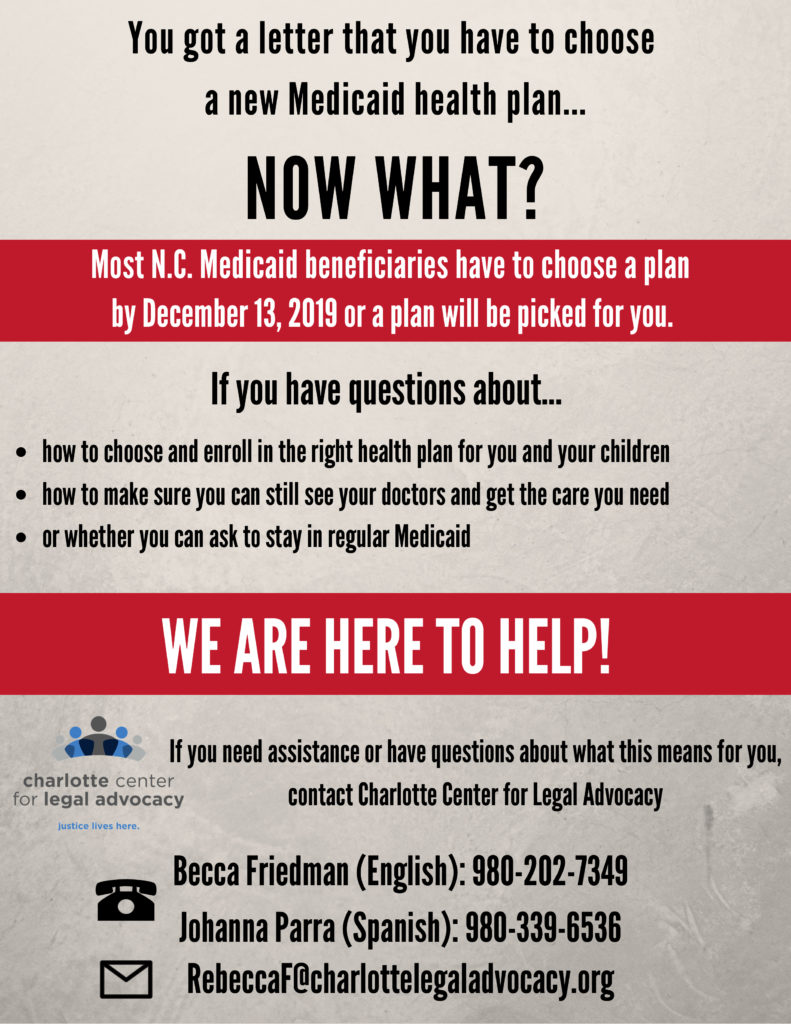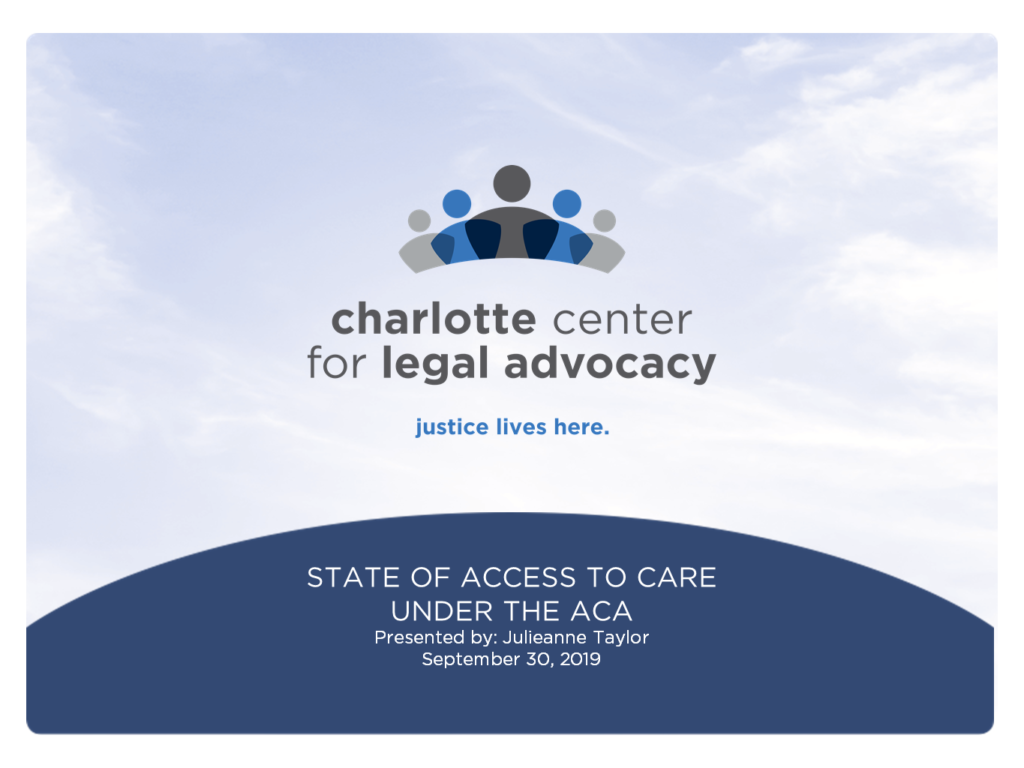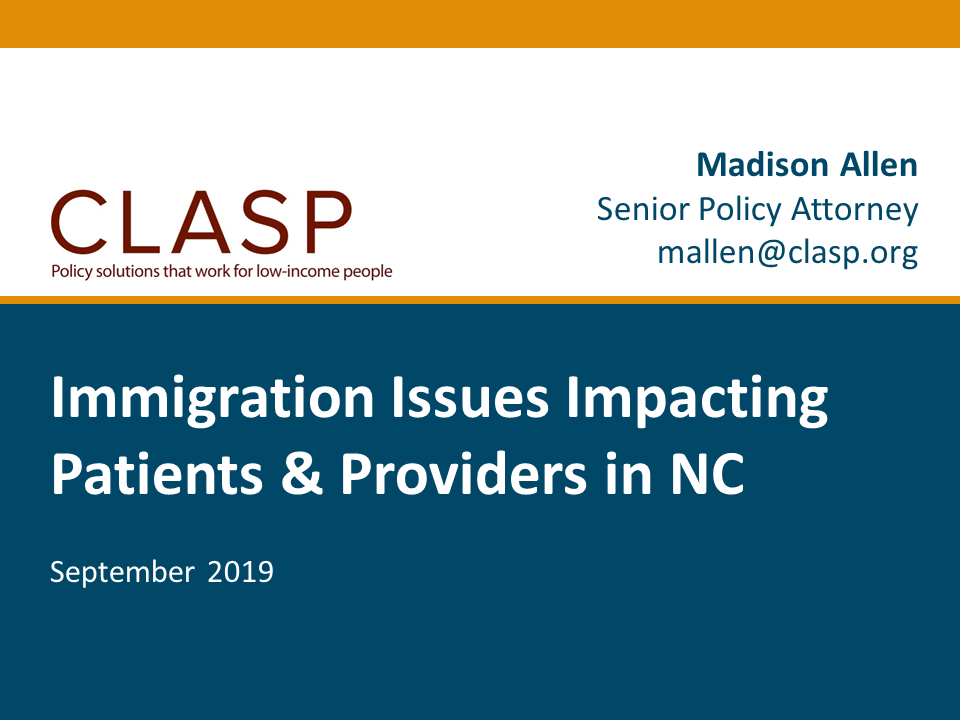When it comes to health care in North Carolina, a lot is changing. Charlotte Center for Legal Advocacy and CareRing recently hosted a policy update to help residents understand what’s changing and how we can protect access to care in our community. Learn about what is happening and use these resources to stay informed.
Medicaid Transformation in North Carolina
North Carolina’s Medicaid program is changing. The state has contracted with private health insurance companies to manage health care for most N.C. residents who receive health coverage through Medicaid and NC Health Choice (CHIP). Find out what you need to know to prepare your family or your patients for these changes.
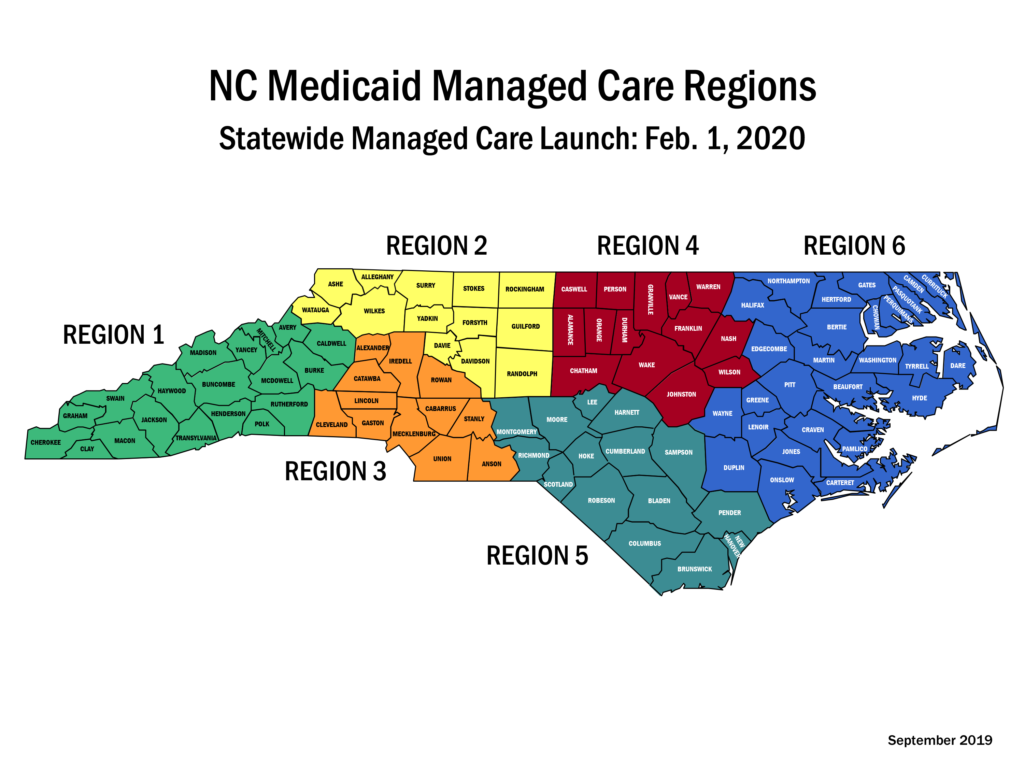
Find out what these changes mean for you and your family and what you need to do to continue receiving your Medicaid benefits.
Contact Charlotte Center
for Legal Advocacy
Becca Friedman (English)
Johanna Parra (Español )
Learn more about Medicaid Transformation in NC
Access to Care Under the Affordable Care Act
Despite misinformation, repeal attempts and significant budget cuts for outreach and advertising, the Affordable Care Act has enabled thousands of North Carolinians to receive affordable health insurance with protections from pre-existing condition exclusions and limits over the last nine years.
More North Carolinians would have access to affordable health coverage and care if the state were to expand it’s Medicaid program under the Affordable Care Act by 2020, which would have provided $21 billion in federal tax dollars to the state and created 43,000 jobs.
Because the state has failed to expand its program, at least 200,000 N.C. residents fall into the Medicaid Gap, where their income is too high to qualify for the current Medicaid program while also being too low to qualify for financial assistance to purchase health insurance under the Affordable Care Act.
Despite N.C.’s failure to expand Medicaid, the state’s uninsured rate is at 11 percent and continues to decrease. Last year, Mecklenburg County had the highest number of enrollments in the state with 60,229 residents enrolling in a Marketplace plan; 53,878 received financial assistance, and 16,655 enrolled for the first time.
There are still more than 1 million N.C. residents who remain uninsured but eligible for coverage with financial assistance.
Open Enrollment Nov. 1 – Dec. 15 2019
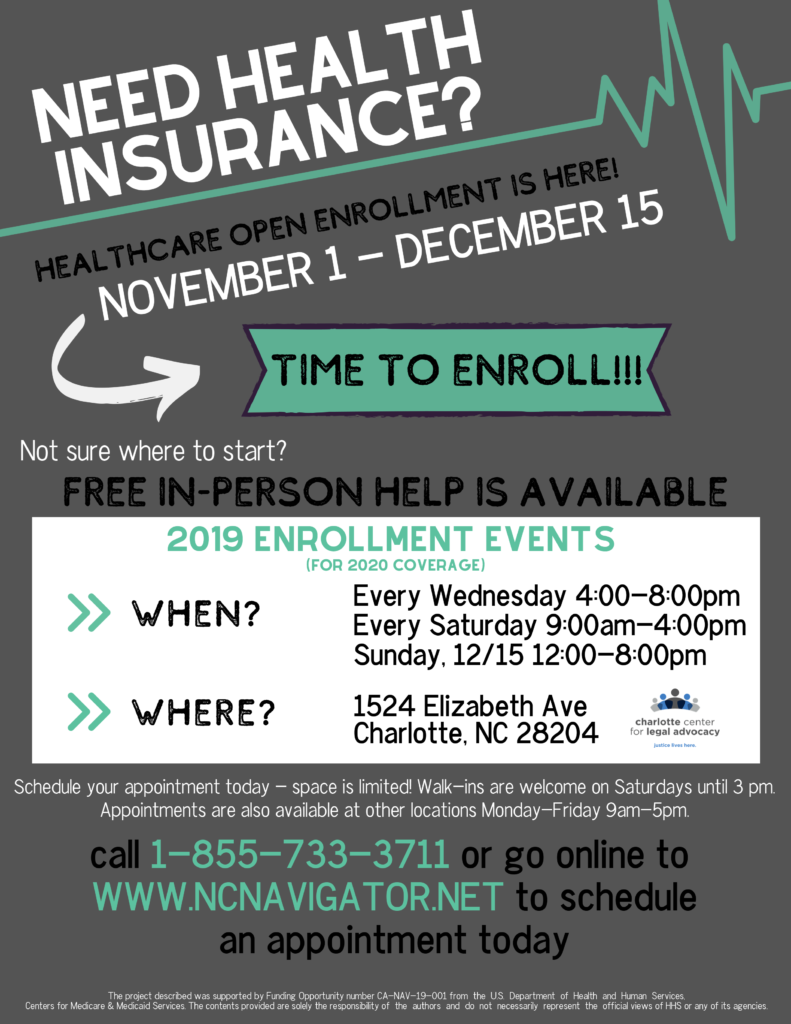
Navigators are available Monday through Friday 9 a.m. to 5 p.m. across Cabarrus, Mecklenburg and Union counties, with enrollment events every Wednesday and Saturday. Make a free appointment today:
- Call 1-855-733-3711
- Visit ncnavigator.net
Learn more about the Health Insurance Navigator Project
Immigrant Access to Health Care in North Carolina
Over the last two years, immigrant families have been targeted by policy changes that have impacted their safety, security and stability.
As advocates for health care and immigrant families, we have the opportunity to fight fear with facts.
Immigrants — including naturalized citizens, lawfully present non-citizens and people who are undocumented — make up 13 percent of the U.S. population. The vast majority of children in immigrant families are U.S.-born citizens, which means they have access to the same health care and benefits as other U.S. citizen children.
Shift in Federal Immigration Policies
- Increasing immigration enforcement
- Removal of legal protections
- Reducing access to public benefits
Impact on Health Care Access
- Immigrant families, including those with lawful status, are experiencing resounding levels of fear and uncertainty.
- Increased fears are having significant negative effects on the health and well-being of children that have lifelong consequences.
- Immigrant families have growing concerns about participating in public programs.
What you can do
- Understand these policies and how they impact our community
- Help patients understand their health coverage options.
- Make your voice heard! Hold policy makers accountable to protect and expand access to health care in our community.
